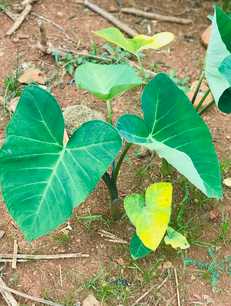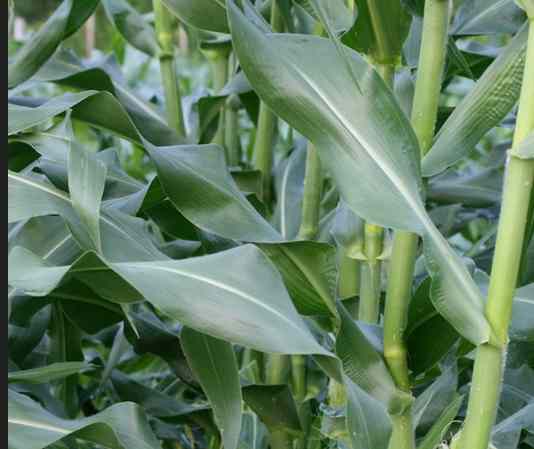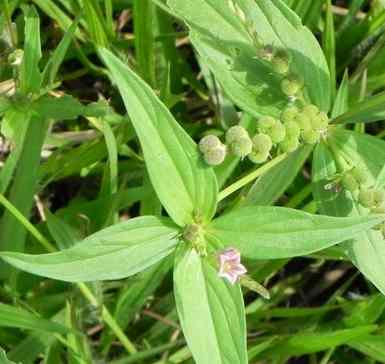
support@yorubalibrary.com
+2348073529208, 07038599574

Ewe Kókò, known in English as Cocoyam Leaf and botanically as Colocasia, is a popular and edible leafy vegetable in Yoruba land. Apart from its use as food, it is highly valued in traditional medicine for its blood-building, wound-healing, and digestive properties. Please note that, Ewe Kókò is not the same thing as Ewe Kòkó
The leaf is rich in iron, vitamins, and minerals, making it an important natural food for strengthening the body and improving general health. Spiritually, Ewe Kókò is used for cleansing, attracting blessings, and neutralizing negative energy.
Key Facts
Category: Leaf
Botanical Name: Colocasia
Common Name: Cocoyam Leaf
Yoruba name: Ewe Kókò
Igbo Name: Nil
Hausa Name: Nil
Health Benefits
1. Builds Blood and Prevents Anemia
Because of its high iron content, Ewe Kókò helps boost blood production and is recommended for people with low blood levels.
2. Improves Digestion and Relieves Constipation
The fiber in cocoyam leaves aids digestion and prevents constipation naturally.
3. Boosts Immunity and Strengthens the Body
The vitamins and minerals in the leaf help strengthen the immune system and maintain overall wellness.
4. Speeds Wound Healing and Improves Skin Health
Crushed or boiled leaves are used in some traditional treatments for minor wounds, skin irritations, and rashes.
5. Regulates Blood Pressure and Supports Heart Health
The potassium in cocoyam leaves helps regulate blood pressure and maintain a healthy heart.
6. Restores Strength After Sickness
It is often included in soups and herbal diets to help patients recover faster after illness or childbirth.
Want to treat common ailments such as Malaria, Cough, Measles, Typhoid, Pile etc naturally without spending much? Grab a copy of Authentic Herbal Solutions: 15 Common Ailments & Their Natural Cures. A practical eBook recommended for everyone regardless of tribe, religion or association. Order below or Download sample here
AUTHENTIC HERBAL SOLUTION #4KOne Yoruba proverb says "Bí olóde ò kú, òde rè kì í wu Gbégi". Do you know that Gbégi is actually a leaf/plant? Get Yoruba Proverbs on Plants and Herbs, which is a collection of Untold Wisdoms Hidden in Leaf and plants comprising their Life Applications & Moral Teachings. Order below or download sample here
YORUBA PROVERBS ON PLANTS #4KSpiritual Use
1. Cleansing Bad Luck and Negative Energy
Ewe Kókò is used in ritual baths to wash away bad luck, envy, and spiritual blockages.
2. Attracting Blessings and Prosperity
Combined with other sacred herbs, the leaf is used in rituals to open doors of wealth, success, and favor.
3. Protection Against Evil Attacks
The leaf is sometimes used in charms or placed in homes to neutralize spiritual arrows and witchcraft attacks.
4. Restoring Peace and Family Harmony
Herbal baths or sprinkling Ewe Kókò water around the home is believed to restore love and peace among family members.
5. Fortification for Travelers and Pregnant Women
Some herbalists use cocoyam leaf preparations to spiritually fortify travelers and protect pregnant women against spiritual attacks.
Characteristics
⦁ Physical Appearance –
Ewe Kókò has broad, heart-shaped green leaves with thick stalks.
⦁ Taste and Smell –
When cooked, it has a mild leafy taste; raw leaves can be slightly itchy on the skin due to calcium oxalate crystals.
⦁ Growth Pattern –
Grows in moist soils, farms, and riverbanks, cultivated widely as a food crop in Yoruba land.
Functions
⦁ Traditional Medicine –
Blood building, heart support, wound healing, and post-illness recovery.
⦁ Spiritual Cleansing –
Removes bad luck, protects against witchcraft, and attracts blessings.
⦁ Food Value –
A nutritious leafy vegetable rich in iron, fiber, and vitamins.
Conclusion
Ewe Kókò, the Yoruba Cocoyam Leaf (Colocasia), is both a nutritious vegetable and a powerful medicinal leaf. It is used to build blood, strengthen the immune system, and heal wounds.
Have you heard of our Yoruba Herb Dictionary? This contains names of Yoruba Leaf, Roots, Barks, Characteristics, Properties & Identification with HD Pictures. Order below or download sample here
A-Z HERBS & LEAF DICTIONARY #4K
Know more about the Yoruba traditional uses and he…

Learn about Ewe Aran, a potent Yoruba medicinal le…